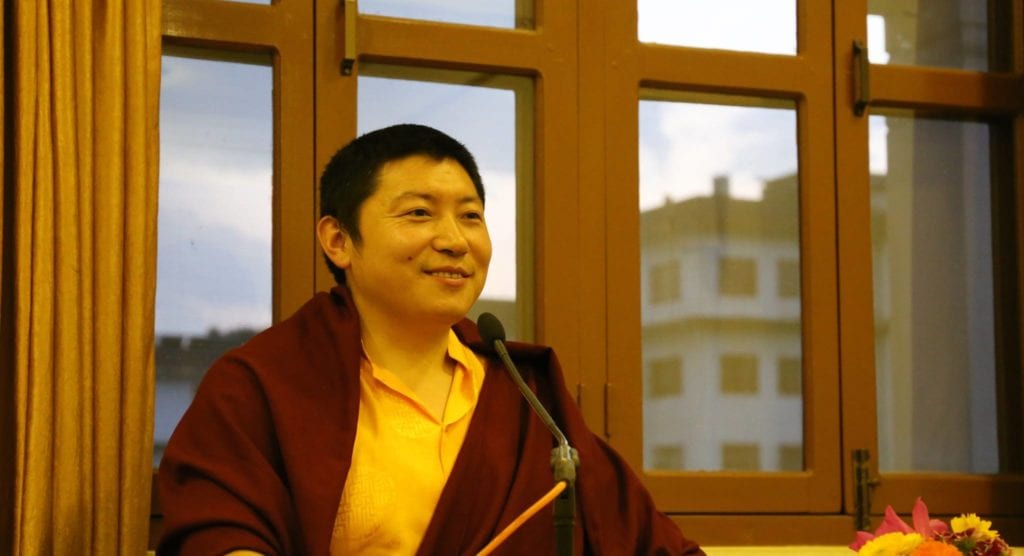Dealing with addictive behaviors of any type — alcohol, drugs, cigarettes, sugar, gambling, technology, etc. — is a serious issue. Phakchok Rinpoche here clearly states that he doesn’t have a magic solution to this problem, which affects so many people in the world. Addiction therapy and support programs need to be created and provided within caring communities. If we or our friends and loved ones are suffering from addictions, we can seek out these resources.
Addictive Behavior and Slow Change

Generally, when Rinpoche works with students, he suggests that they slowly try to reduce their dependency on substances or habits. But he understands that we have many excuses for our behavior and change like this is not easy. The best answer he offers us is to not attach too strongly to one pattern. He gives personal examples of feeling good from undertaking cleansing treatments or watching online videos. Rinpoche notes that he is very aware, however, and does not want to get “hooked” by these pleasurable experiences.
Addictive behavior can be noticed, Rinpoche says when we find ourselves missing the experience when it is not there. Perhaps then we begin to feel angry and we really want to have whatever makes us happy. If we see that the wanting becomes too strong, we know the addiction is too strong. In order to avoid this, it is good to have a less fixated attitude. We should not become too attached to our personal desires, whether it be a particular food or whatever.
Reducing our Preferences
One of the guidelines for a tantric practitioner is that he does not have preferences. He is okay with whatever food, drink, or circumstance appears. It is possible to reduce our addictions with that kind of training. And this is something that Rinpoche says he keeps in the back of his mind. Wherever we go, we should think it is good. We can gently train in this way to overcome our sticky preferences unless we have real physical addictions that need therapy. In that case, we might need to follow different types of treatment. But we come to remember that physical addiction is not the root of the problem: the big issue is with the mind.
Recalling Motivation
Addictive behavior means that we are always looking for some other entertainment or distraction — for “me!” It is important to acknowledge that addiction has to do with our own ego. It is about “me” feeling good.
For that reason, when we practice we can kindly and gently remind ourselves that we are doing this for the benefit of others. Rinpoche reminds us that bodhicitta and devotion remain very important guidelines to keep our motivation pure.










Responses